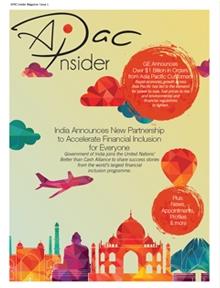
APAC’s Volume Share and Margins in the Contract Research Organisation to Increase
New analysis from Frost & Sullivan, APAC Contract Research Organisation (CRO) Market, finds that the market earned revenues of US$3.47bn in 2014 and estimates this to more than double to US$8.45bn in 2019 at a robust compound annual growth rate of 19.5%.
Asia-Pacific (APAC) holds the third-largest share of the global contract research organisation (CRO) market. The trend of outsourcing to low-cost locations is likely to result in lower margins but higher volume share for the region in the short term. With increased capacity and scale, however, margins in the CRO industry will improve.
APAC is experiencing tremendous growth in R&D spending due to increased globalisation of the pharmaceutical and biotechnology markets. CROs in the region are hugely benefitting from this trend.
“Health economics and outcomes research is becoming a crucial segment in the APAC CRO business,” said Frost & Sullivan Healthcare Consultant Sanjeev Kumar. “Pricing pressures and regulatory restrictions are creating a demand for these services, which provide information on products and its potential and pave the way for market access.”
However, outsourcing will remain limited among big pharmaceutical clients, who have in-house R&D and clinical drug testing facilities due to their high capacity and financial strength. This, along with the lack of intellectual property (IP) protection, will restrict CRO market development.
“Insufficient IP protection is a major concern among multinational companies (MNCs) that are looking to conduct trials in APAC,” noted Kumar. “Even though regulations have improved significantly over the years, there are still some loopholes in terms of enforcement and sanctions, especially in countries such as China, where revelation of extensive information that MNCs consider proprietary is required.”
Opportunities for CROs will nevertheless prevail in the APAC market. With the rapidly-expanding middle class population in the region changing their lifestyle due to more Western influence, the number of people suffering from similar diseases as those in developed countries is growing. Infectious diseases that are only prevalent in developing nations are also rising. Consequently, healthcare companies are faced with a more diverse set of ailments to address, making patient recruitment easier and the need for CROs stronger.





























